I had the privilege to attend another Garden Blogger’s Fling, this one hosted in Denver, Colorado! I’ve never visited the city or state. In addition to meeting new Flingers and reuniting with known Flingers, I was able to be present in a gardening environment completely new to me. I flew out to this year’s Fling a day early, allowing me to attend the group dinner/reception held the Thursday evening before the official start of the Fling. This year’s dinner was held at The GrowHaus.
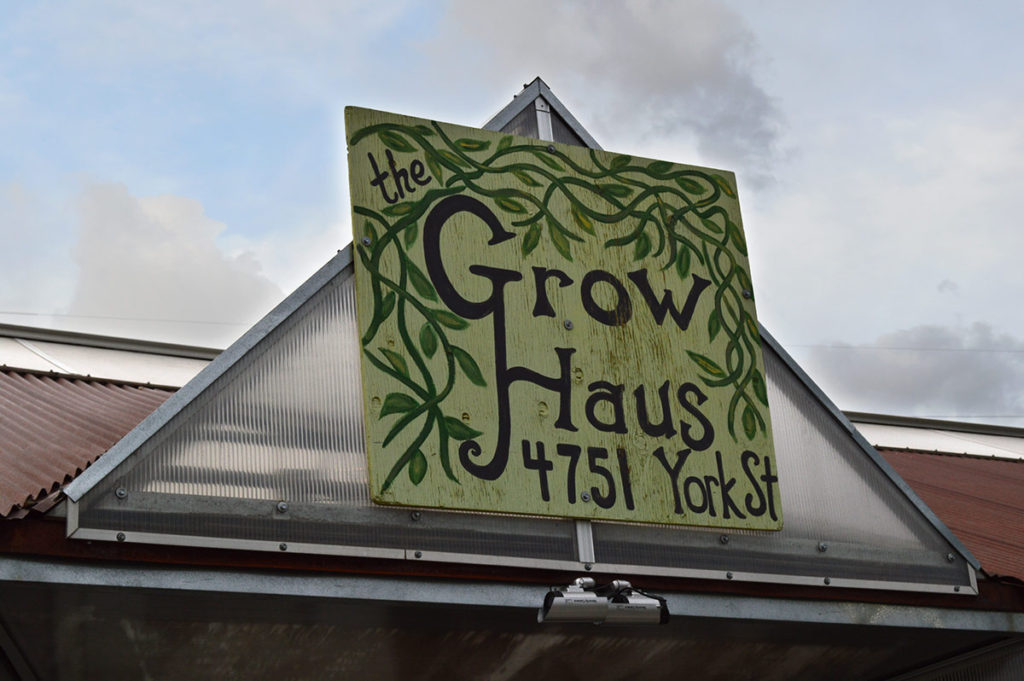
Healthy Food is a Right, Not a Privilege
According to their website, the GrowHaus defines itself as “a nonprofit indoor farm in Denver’s Elyria-Swansea neighborhood.” It’s vision is “to catalyze a neighborhood-based food system in our community that is healthy, equitable, and resident-driven.” I was quickly smitten. I truly believe gardens can be powerful tools for good. My own city’s Urban Roots is striving toward very similar goals.
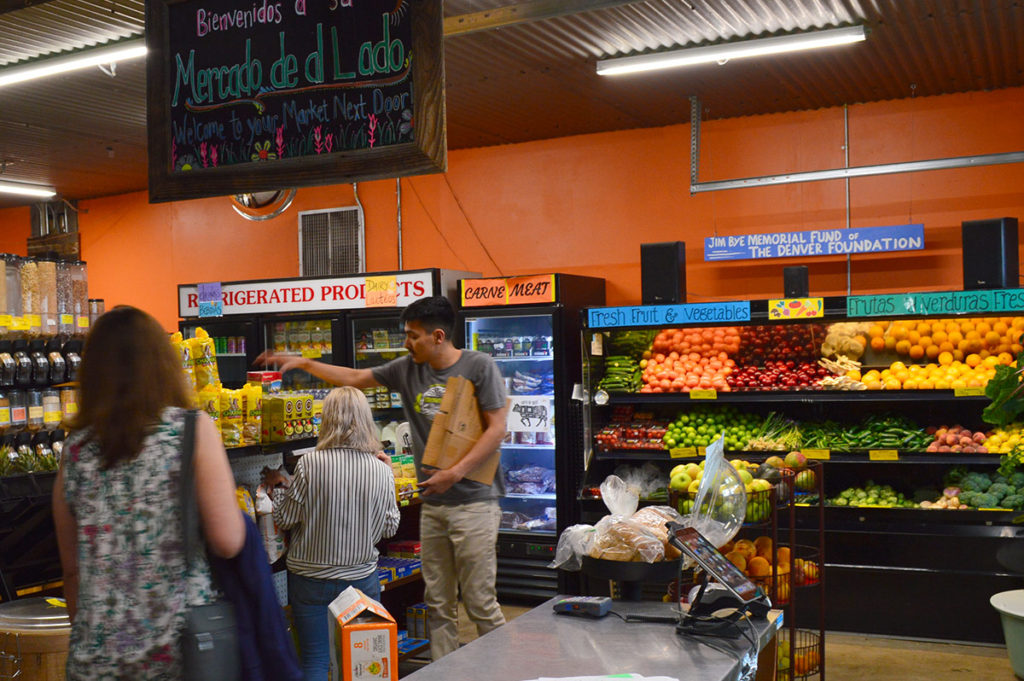
The GrowHaus produces and distributes healthy food. Like Urban Roots, immediate residents of the area receive discounted prices. Since the neighborhood is 83% latino, all signage is displayed in both Spanish and English. At the front of the building, a wonderful market is maintained to sell fresh produce.
Hydroponics Farm
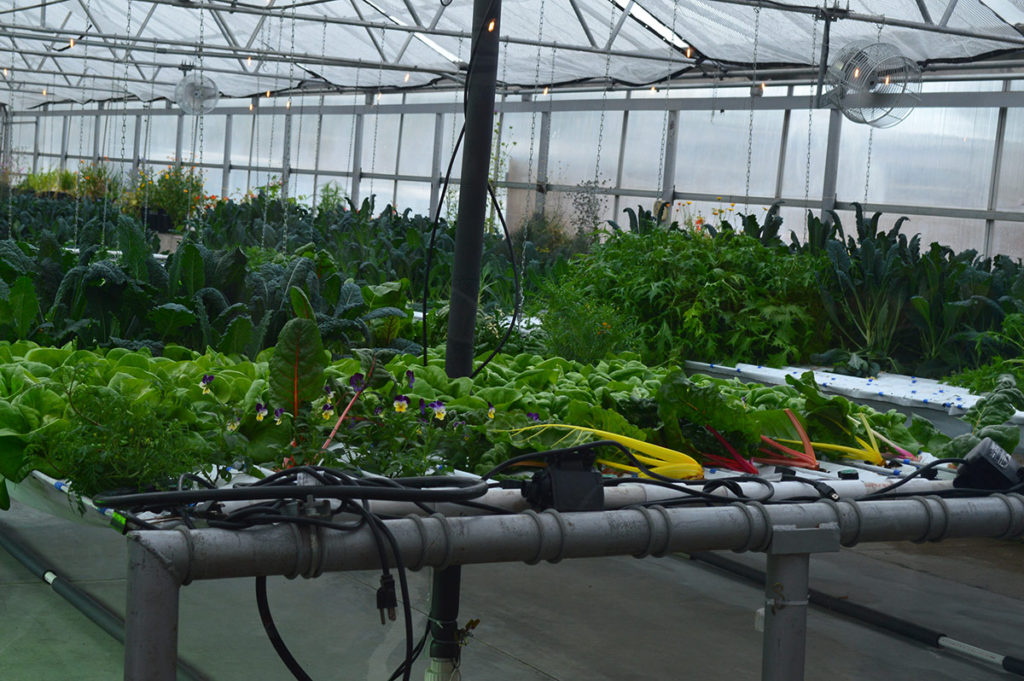
A hydroponics farm has been running year round at The GrowHaus since 2012. Most of the greens, including lettuce, arugula, kale, and chard are grown. With a system of troughs and liquid fertilizer, the hydroponics farm produces an average of 1,200 heads of greens per week while using 90% less water than traditional farming practices.
Aquaponics Farm
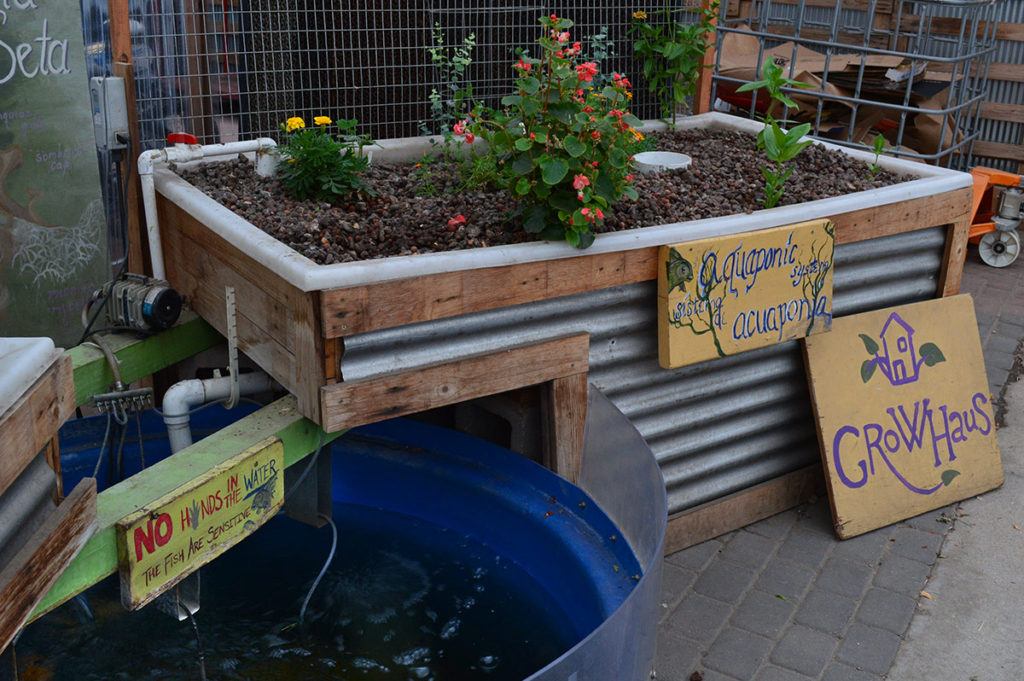
In partnership with GrowHaus, the Colorado Aquaponics team maintains a 3,200 sq ft aquaponics system. The picture above is a smaller-scale model exemplifying such a system. Aquaponics mimics a natural ecosystem in-so-far-as the by-product of one species supports the growth of another. As show in the model, the water containing waste from the fish is pumped into the plants’ troughs. The plants utilize the nutrients from the waste and clean water is returned to the fish tanks.
Mushroom Farm
Tucked away in what looked like a 200 sq ft, dark closet was the mushroom farm. Control of humidity, temperature, and gas exchange combined with a vertical approach to gardening allows the GrowHaus to supply residents with crops of healthy mushrooms.
Gardening as Education and Outreach

If each generation remembers to honor our ancestors and builds those that will still come, we will be able to strengthen ourselves and improve not only our community but also our nation and the world.
One of my favorite things to do beyond the act of gardening is TALKING about gardening. I often enjoyed chatting with neighbors walking by the garden plot at Urban Roots when I volunteered there a couple of seasons ago. Education about gardening is something everyone should have ready access to in their community. The GrowHaus seems to be a complete rockstar in this area with their food education programming for both the general public and those living in the neighborhood.
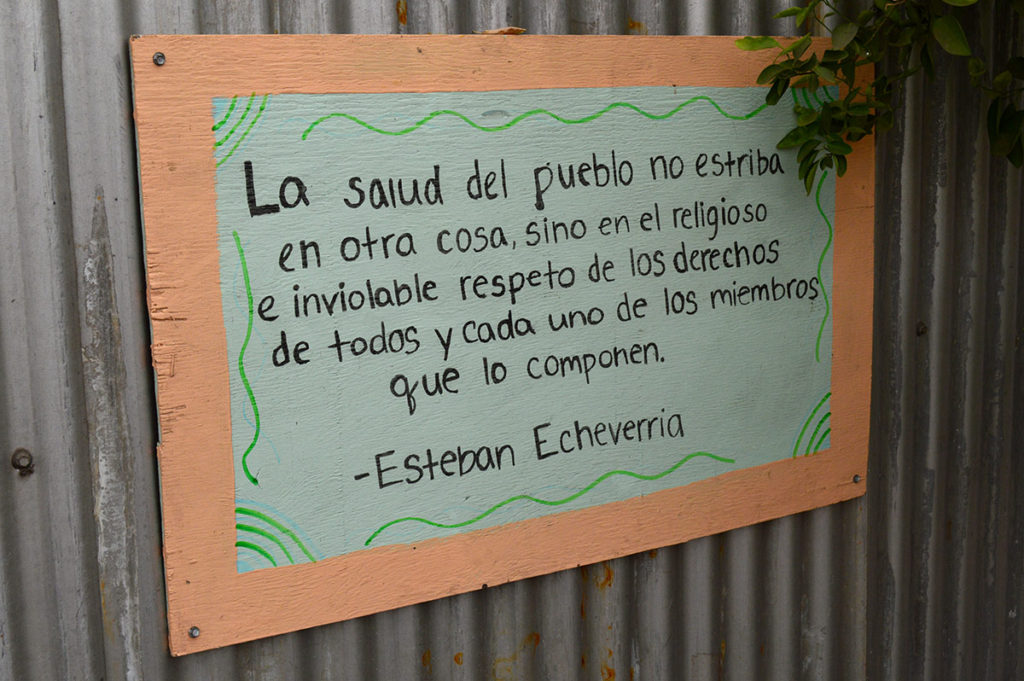
In addition to food education, the GrowHaus understands the important aspect of engaging the community it wishes to serve. I’ve noticed some community gardens struggle to establish. A common thread I’ve seen in these cases are a group of well-meaning gardeners building a garden plot and telling the neighbors what they need. Instead, the more successful community gardens have sought out leaders living in the community, engaged its members, and listened to what the community really wants from their garden.
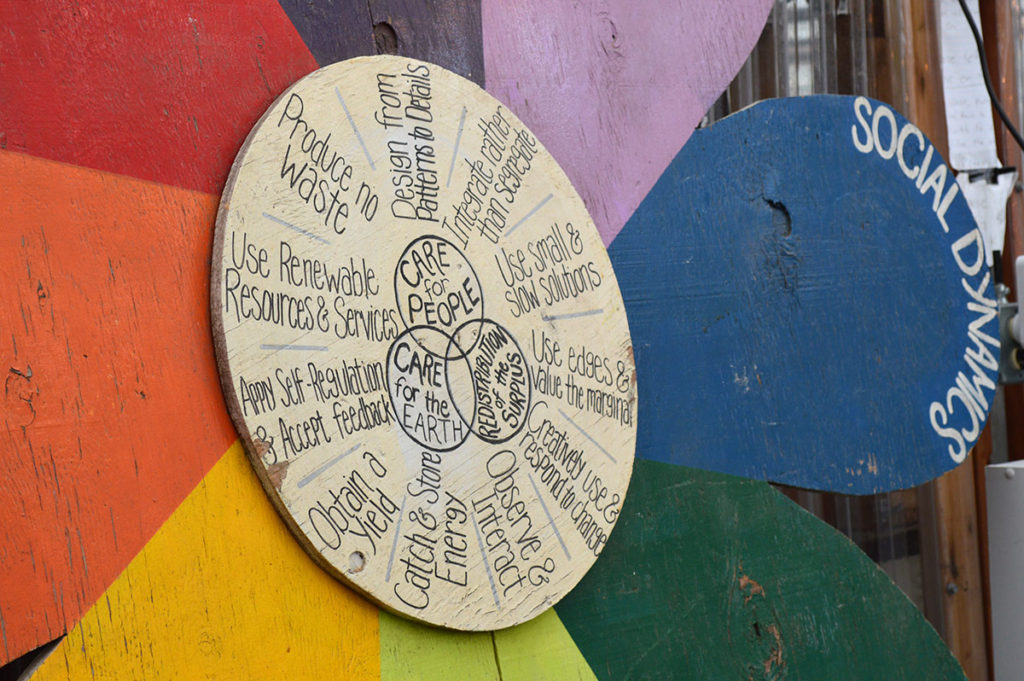
And that idea brings me to my very favorite part of gardening… the naturally intertwined ideas and practices of caring for oneself, your community, and the environment through gardening. With work done by The Grow Haus and the neighbors themselves, a discarded community and food desert is being converted into a bountiful and sustainable garden for its residents.
I agree, healthy food is a right….not a privilege. I thoroughly enjoyed the place and hearing about their vision.
So glad you liked it. Food justice is so close to my heart! Great post!